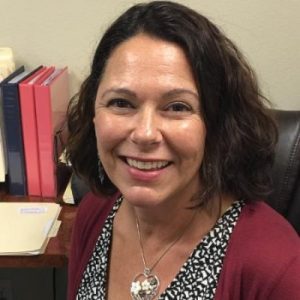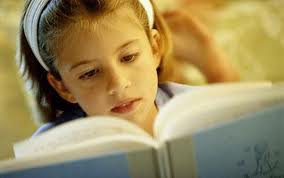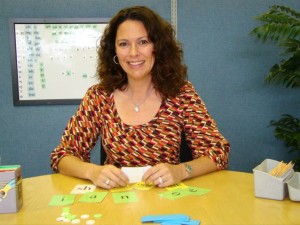
by PRIDE Reading Program Admin | Apr 15, 2017 | A PRIDE Post, Reading Disability
Although children do develop at different rates, attributing a struggling reader to immaturity is risky and usually unhelpful. Children, who are poor readers at the end of first grade, are most often still poor readers in fourth grade.
Early signs of reading problems should never be ignored or passed off as a developmental lag. It is never a good idea to “wait and see” if a child grows out it. The safest assumption is that early, direct teaching designed to help a struggling reader will minimize risks later on. If a child is taught the sounds, letters, words, and language comprehension skills necessary by the end of first grade, most of these children will avoid failure.
Reading intervention in kindergarten and first grade is more effective than intervention in fourth grade and older. This is because early intervention takes less time and resources to close the reading gap than using remediation strategies in reading later on. According to The National Institute of Child Health and Human Department, 90% of poor readers can increase reading skills to average reading levels with prevention and early intervention programs that combine instruction in phonemic awareness, phonics, spelling, reading fluency, and reading comprehension provided by highly qualified and well-trained teachers. It takes four times as long to improve the skills of a struggling reader in fourth grade as it does to do so between mid-kindergarten and first grade. In other words, it takes two hours a day in fourth grade to have the same impact as thirty minutes a day in first grade. If intervention is not provided until nine years of age, approximately 75 to 88 % of these children will continue to have reading difficulties throughout high school and their adult lives.
Although there is a crucial window of opportunity (kindergarten to middle of first grade) parents need to know that it is never too late to help a struggling reader. Older children can be taught to read but the instruction may be harder to arrange, it will take more time, and it will require an intensive effort from the teacher, the student, and the parent.
On the whole, delayed intervention is costlier to everyone, including the child. These children will be more likely to develop confidence, enjoy reading, read more, and read better if they get off to the right start.
Karina Richland, M.A., is the Founder of PRIDE Learning Centers, located in Southern California. Ms. Richland is a certified reading and learning disability specialist and speaks frequently to parents, teachers, and professionals on learning differences. She is also the author of the PRIDE Reading Program, an Orton-Gillingham approach to teaching reading, writing and comprehension. You can visit the PRIDE Learning Center website at: www.pridelearningcenter.com

by PRIDE Reading Program Admin | Mar 5, 2017 | A PRIDE Post, Reading Disability
Many students require extra help in reading. When evaluating remedial reading programs for your child, be aware that not all programs are effective and many can be a waste of time. I made a list of 5 important questions to ask before enrolling your child in this extra reading help.
1. Will the reading help my child receives be provided by a trained teacher, paraprofessional or a parent volunteer?
In many schools parents are trained to work as parent volunteers and aids to help the students who are struggling. If your child has been diagnosed with a learning disability, or you suspect a more severe issue than the school is acknowledging, then you will probably want to decline any reading help that is not from a highly trained reading therapist or reading specialist. A child with true learning difficulties will need instruction delivered by an experienced expert using an effective method for sufficient time for the child to catch up to grade level.
2. What specific reading help will my child be receiving?
A child with a reading disability will need a multisensory, systematic, very structured and cumulative reading program with direct and explicit instruction in phonemic awareness and followed by synthetic and analytic phonics with lots of repetition and practice. It will need to integrate the teaching of listening, speaking, reading, spelling, vocabulary, fluency, handwriting, and written expression. Also, remedial programs differ from “mainstream” programs in the extent to which phonology and language structure are explicitly taught. For best results, avoid reading help that teaches your child the material in the same way he or she was taught the first time around. That didn’t work. Also avoid programs that allow too many kids in the group. The idea is that your child needs more individualized attention.
3. What kind of training in this reading help does the teacher delivering the instructions have?
Although the choice of reading program is important, the expertise and training of the teacher are even more critical. Attendance at a 2 day workshop is probably enough to gain an overview of an approach, but to be truly competent at using this approach, a teacher or therapist should have completed at least 20 – 30 hours of training as well as plenty of experience teaching the program.
4. What will my child miss in the classroom while he gets this reading help?
Being pulled out of class can be challenging for students, especially in the middle school years, since they might have to make up material that they miss in class and might receive lower grades in subjects in which they normally do well.
5. Can I come and watch a session?
Check out the teacher, the program and the other students. See if this is the right fit for your child and if the reading help is working and delivering results.
Learn more about the New PRIDE Reading Program
___________________________________________________________________________________________________________________________________

Karina Richland, M.A. is the Founder and Director of PRIDE Learning Centers, located in Southern California. Ms. Richland is a certified reading and learning disability specialist. Ms. Richland speaks frequently to parents, teachers, and professionals on learning differences, and writes for several journals and publications. You can visit the PRIDE Learning Center website at: www.pridelearningcenter.com

by PRIDE Reading Program Admin | Dec 2, 2015 | A PRIDE Post, Reading Disability
Reading is an important first step on a child’s path to success in life. A child that is an excellent reader is a confident child, has a high level of self -esteem and is able to easily make the transition from learning to read to reading to learn. For many of us reading is a natural process and we can read with ease and pleasure. Unfortunately, for a child with a reading disability, the reading process can become a frustrating and negative experience and is often very difficult to master.
What is a Reading Disability?
A reading disability is an inherited condition that makes it extremely difficult to read, write, and spell despite at least an average intelligence.
Learning to read is a sequential process. Each new skill a child learns builds on the mastery of previously learned skills. First, a child learns to break down words into their most basic sounds, which we call decoding. Later on, the child begins to comprehend the meaning of words and sentences, which we call reading comprehension. Decoding is an essential step in the reading process since it forms the foundation of reading. For a child with a reading disability, decoding does NOT come naturally and is NOT an automatic process. Most reading experts will agree that decoding problems is the basis of most reading disabilities.
Does my child have a reading disability?
Some signs of a reading disability:
- Child has difficulties sounding out words
- Slow laborious reading
- Reads without expression
- Ignores punctuation while reading out loud
- Guesses based on first letter of word
- Puts extra sounds into a word
- Drops syllables
- Reverses sounds
- Struggles with spelling
- Substitutes small common words
If your child is struggling in reading and showing the above symptoms, there may be good reason for you to request an immediate assessment. As a parent you want to be certain that you are providing what is needed for your child to succeed in school. To know what is necessary, an assessment is the first thing to do in order to identify the issues to remedy.
What is an assessment?
An assessment is simply a standardized test performed by someone trained and licensed to understand how to give the test and how to interpret the results. Specialists trained to do psychological testing and result interpretation are:
- Clinical psychologist
- School psychologist
- Educational psychologist
- Developmental psychologist
- Neuropsychologist
- Speech and language therapist
How do I get help?
A child with a reading disability will take in and process information differently and needs to be taught by specialists. Students with a reading disability will need to work with a specially trained teacher, tutor, or reading specialist to learn how to read and spell. Students who have been assessed and diagnosed through the school district might qualify for Special Education Services. Children with a reading disability progress best with a sequential, repetitive, systematic and cumulative structured reading program. Fortunately, with the proper assistance and help, most students with a reading disability are able to learn to read and develop strategies to become successful readers.
When is the best time to get help?
Effective early intervention is the key to helping a struggling reader learn to read. This training needs to begin sooner rather than later for the bet results. According to the National Institute of Health (NIH), 95% of children who have trouble learning to read can reach grade level if they receive specialized help early on. Kindergarten to the middle of first grade are the “window of opportunity” to prevent long term reading problems. Without early intervention, the “reading gap” might never close.
There is no reason why a child with a reading disability cannot learn to read and comprehend well. It is important that we never lower the expectations of a child with a reading disability. Children need to feel that even though they are struggling, they are loved and not being judged. So be encouraging and patient and praise often.
Learn more about the New PRIDE Reading Program
_________________________________________________________________________________________________
Karina Richland, M.A. is the Founder and Director of Pride Learning Centers, located in Los Angeles and Orange County. Ms. Richland is a certified reading and learning disability specialist. Ms. Richland speaks frequently to parents, teachers, and professionals on learning differences, and writes for several journals and publications. You can reach her by email at karina@pridelearningcenter.com or visit the Pride Learning Center website at: www.pridelearningcenter.com

by PRIDE Reading Program Admin | Feb 14, 2015 | A PRIDE Post, Reading Disability
Reading is an important first step on a child’s path to success in life. A child that is an excellent reader is a confident child, has a high level of self -esteem and is able to easily make the transition from learning to read to reading to learn. For many of us reading is a natural process and we can read with ease and pleasure. Unfortunately, for a child with a reading disability, the reading process can become a frustrating and negative experience and is often very difficult to master.
What is a Reading Disability?
A reading disability is an inherited condition that makes it extremely difficult to read, write, and spell despite at least an average intelligence.
Learning to read is a sequential process. Each new skill a child learns builds on the mastery of previously learned skills. First, a child learns to break down words into their most basic sounds, which we call decoding. Later on, the child begins to comprehend the meaning of words and sentences, which we call reading comprehension. Decoding is an essential step in the reading process since it forms the foundation of reading. For a child with a reading disability, decoding does NOT come naturally and is NOT an automatic process. Most reading experts will agree that decoding problems is the basis of most reading disabilities.
Does my child have a reading disability?
Some signs of a reading disability:
- Child has difficulties sounding out words
- Slow laborious reading
- Reads without expression
- Ignores punctuation while reading out loud
- Guesses based on first letter of word
- Puts extra sounds into a word
- Drops syllables
- Reverses sounds
- Struggles with spelling
- Substitutes small common words
If your child is struggling in reading and showing the above symptoms, there may be good reason for you to request an immediate assessment. As a parent you want to be certain that you are providing what is needed for your child to succeed in school. To know what is necessary, an assessment is the first thing to do in order to identify the issues to remedy.
What is an assessment?
An assessment is simply a standardized test performed by someone trained and licensed to understand how to give the test and how to interpret the results. Specialists trained to do psychological testing and result interpretation are:
- Clinical psychologist
- School psychologist
- Educational psychologist
- Developmental psychologist
- Neuropsychologist
- Speech and language therapist
How do I get help?
A child with a reading disability will take in and process information differently and needs to be taught by specialists. Students with a reading disability will need to work with a specially trained teacher, tutor, or reading specialist to learn how to read and spell. Students who have been assessed and diagnosed through the school district might qualify for Special Education Services. Children with a reading disability progress best with a sequential, repetitive, systematic and cumulative structured reading program. Fortunately, with the proper assistance and help, most students with a reading disability are able to learn to read and develop strategies to become successful readers.
When is the best time to get help?
Effective early intervention is the key to helping a struggling reader learn to read. This training needs to begin sooner rather than later for the bet results. According to the National Institute of Health (NIH), 95% of children who have trouble learning to read can reach grade level if they receive specialized help early on. Kindergarten to the middle of first grade are the “window of opportunity” to prevent long term reading problems. Without early intervention, the “reading gap” might never close.
There is no reason why a child with a reading disability cannot learn to read and comprehend well. It is important that we never lower the expectations of a child with a reading disability. Children need to feel that even though they are struggling, they are loved and not being judged. So be encouraging and patient and praise often.
Learn more about the New PRIDE Reading Program
Karina Richland, M.A. is the Founder and Director of Pride Learning Centers, located in Los Angeles and Orange County. Ms. Richland is a certified reading and learning disability specialist. Ms. Richland speaks frequently to parents, teachers, and professionals on learning differences, and writes for several journals and publications. You can reach her by email at karina@pridelearningcenter.com or visit the Pride Learning Center website at: www.pridelearningcenter.com

by PRIDE Reading Program Admin | Mar 18, 2014 | A PRIDE Post, Reading Disability
Intervene early! Reading disabilities are considered to be the most common learning disability and are often not diagnosed or treated until it is too late for easy recovery. A child with a reading disability that is not identified until the third grade or later is already years behind his or her classmates. This is a gap that must be closed if the child is ever to catch up with his or her peers. The best intervention is in kindergarten or remediation beginning in the first grade.
Teach phonics. Through phonics, children learn to associate sounds and form connections to word recognition and decoding skills needed for reading. Research clearly proves that phoneme awareness performance is a major predictor of long- term reading and spelling success. In fact, according to the International Reading Association, phonemic awareness skills in kindergarten and first grade appear to be the most important predictor of successful reading acquisition.
Teach spelling. Spelling and reading rely on the same mental representations of a word. The correlation between spelling and reading comprehension is high because both depend on proficiency with language. The more profoundly and methodically a student knows a word, the more likely he or she is to recognize it, read it, spell it, write it, and use it appropriately in speech and writing.
Teach writing. Start teaching writing in preschool and kindergarten. Learning to write engages the brain in repetition and memory on how letters and sounds reflect meaning, addresses numerous reading and cognitive skills, and helps activate both reading and spelling areas of the brain.
Teach handwriting. Technology is a fun writing tool for kids but it doesn’t engage the early reading brain in the same helpful way as learning to move the pencil across the page to use letters as images of sound. Brain scan studies show that early lessons in letter formation help activate and coordinate reading connections in the brain.
Repetition, repetition, repetition. The brain of a child feeds on repetition to make doing things such as reading automatic and fluent. Use repetition in the early grades for reading aloud, for rhyming, for matching letters with sounds, for writing alphabet letters, for spelling, for sounding out words, for automatic reading of sight words, for making meaning in print. Children thrive on it. So make it fun!
Don’t ever give up on your child. Keep the expectations of your child and their reading future high. We owe it to our children to show our support, give them every resource possible to help them and give them the skills necessary for learning and communicating throughout their education and their lives.
________________________________________________________________________________________________________

Karina Richland, M.A. is the Founder and Director of PRIDE Learning Centers, located in Los Angeles and Orange County. Ms. Richland is a certified reading and learning disability specialist. Ms. Richland speaks frequently to parents, teachers, and professionals on learning differences, and writes for several journals and publications. You can visit the PRIDE Learning Center website at: www.pridelearningcenter.com







